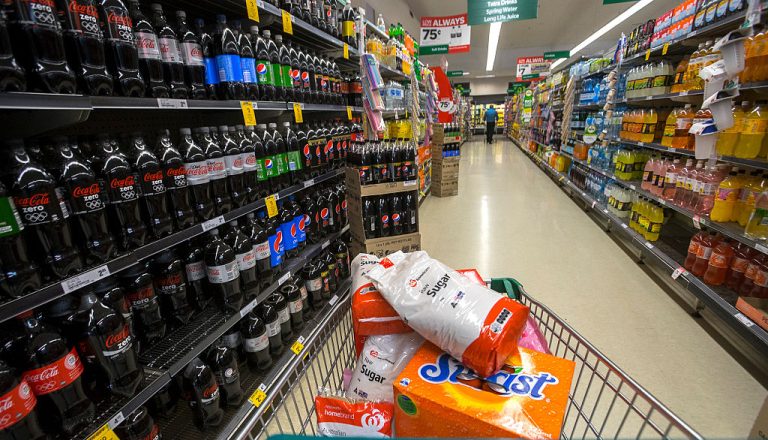A recent scientific study has confirmed what many people have intuitively or experientially understood: nanny state “sin taxes,” specifically those levied on sugary drinks such as soda, simply don’t work.
An August study published by a pair of researchers from the University of Georgia and Indiana University Bloomington utilized data analysis of point of sale (PoS) transactions in Philadelphia, which imposed a heavy 1.5 cent per ounce tax on “sweetened beverages intended for resale” in 2017, to draw their conclusions.
According to the City website, the tax is imposed on virtually all soda-style drinks, including those marketed as zero calorie or made with artificial sweetener.
Additionally, dairy-based foods are subject to the tax, unless they are at least 50 percent dairy. Juice and fruit-themed drinks are also taxed unless they are 100 percent fruit juice.
MORE ARTICLES ON SUGAR
- Making Mooncakes: A Chinese Recipe for Reunion
- Forget Vaccine Passports – UK Government to ‘Monitor Family Supermarket Spending’ in Social Credit-Style Anti-Obesity Campaign
- Ultra-processed Foods Associated With Cancer, Early Death
- Sugar: An Addictive Additive That We Would Do Well to Avoid
Authors explained in the preamble of their study, “Sin taxes are taxes levied against items deemed undesirable. They serve the dual purpose of raising revenues and lowering demand for potentially harmful substances. Before the passage of SSB [sugar sweetened beverage] taxes in the US in 2015, the most common sin taxes were on tobacco and alcohol.”
Success
You are now signed up for our newsletter
Success
Check your email to complete sign up
Researchers wondered if such taxes actually led to reduced sugar consumption, and so they invoked PoS data to compare local Philadelphia zip code transactions against “items that are considered as the main sources of sugar by the American Heart Association” in order to “see how sales of these foods change[d] after the introduction of the tax.”
Specifically, the categories targeted were “raw sugar, jams, jellies and spreads, canned fruit, desserts and gelatin and syrup, crackers, cookies, and condiments” because those are specifically denoted by the AHA as high sources of sugar consumption.
“These items would address questions pertaining substitution throughout mechanisms of sugar craving and addiction, as opposed to other drinks where thirst quenching as a motive for substitution is confounded with sugar craving,” the duo stated.
And just what exactly was the outcome? The team found that, much to the consternation of proponents of nanny state legislation, “There was a 4.3% increase in sales of sugar sweetened foods in the representative Philadelphia store.”
Additionally, they found “that the amount of sugar purchased from additional sugary items increased 3.7% in stores neighboring Philadelphia.”
The figure is so significant that “the increase in sugar purchased from additional sweetened foods inside Philadelphia offsets approximately 19.1% the reduction in sugar purchased from beverages.”
Purchases of other sugar items in nearby locations outside the city mitigated an additional 18.9 percent of the decrease of sugar consumption from the Philadelphia tax, bringing the grand total to as high as almost 40 percent.
As for lessons learned from the study, Felipe Lozano-Rojas, lead author of the study, could only posit in comments given to the University of Georgia for a Press Release on his findings, that the solution was again in greater and more robust legislation.
“Can we influence behavior through taxation? Yes, but only if you enact a policy at broader levels of government, such as at the state or national level that prevents people from cross-border shopping,” Rojas stated.
Rojas, however, also explained that according to data, low-income earners generally consume a higher amount of sugary drinks, meaning they bear a higher tax burden from the socio-economic policies than those of the more affluent class.
The researcher had a good idea for how to counter the problem on a policy level, “Subsidizing water, making it more accessible, particularly in places where tap water is not drinkable, these are things that might make going with the healthier choice easier.”
Rojas added, “If we were to subsidize healthier options, especially for these groups, the tax might work better…I think this issue requires more of a magnifying glass into these populations to determine the causes driving excessive sugar-sweetened beverage consumption.”















